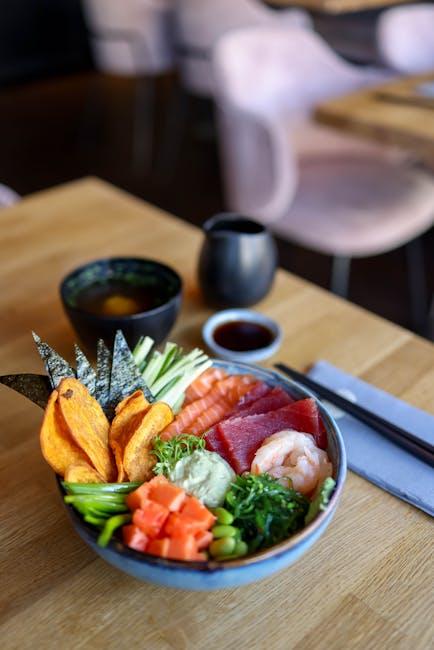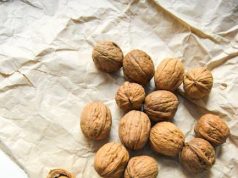In a world where energy is currency, and the hustle of daily life demands constant alertness, finding the right fuel for our bodies is more crucial than ever. Enter the realm of low-carb meal ideas—a culinary landscape where sustenance meets sustainability, offering a pathway to enduring vitality without the peaks and crashes of traditional carb-laden diets. This article embarks on a journey through vibrant plates and innovative recipes, each crafted to provide lasting energy while honoring the body’s natural rhythms. Whether you’re a seasoned low-carb enthusiast or a curious newcomer, prepare to discover meals that not only satisfy your palate but also empower your day with the steady energy you need to thrive.
Exploring Low-Carb Ingredients for Long-Lasting Fuel
Delving into the world of low-carb ingredients can unlock a treasure trove of options for those seeking sustainable energy throughout the day. These ingredients not only support a low-carb lifestyle but also provide the nutrients necessary to keep you fueled. Consider incorporating the following into your meals:
- Avocado: Rich in healthy fats and fiber, avocados are a versatile addition to any meal, whether blended into a smoothie or sliced on a salad.
- Coconut Flour: A low-carb alternative to traditional flour, coconut flour can be used in baking or as a thickener in soups and sauces.
- Eggs: Packed with protein and essential nutrients, eggs are a staple that can be enjoyed boiled, scrambled, or poached.
- Leafy Greens: Spinach, kale, and other greens are low in carbs but high in vitamins, making them perfect for salads, smoothies, or stir-fries.
- Nuts and Seeds: Almonds, chia seeds, and flaxseeds offer a crunchy texture and are excellent sources of energy-boosting fats.
By integrating these ingredients into your diet, you can craft meals that not only align with low-carb goals but also provide the long-lasting energy needed to power through your day. Experiment with different combinations to discover delicious, energy-sustaining dishes that suit your taste and lifestyle.

Crafting Balanced Low-Carb Meals for Steady Energy Levels
Creating low-carb meals that maintain energy levels throughout the day involves a thoughtful blend of macronutrients and a variety of textures and flavors. Focus on incorporating high-quality proteins like grilled chicken, tofu, or salmon, paired with healthy fats such as avocado, nuts, or olive oil. These components work together to sustain satiety and provide a slow release of energy.
- Leafy Greens: Spinach, kale, and arugula serve as excellent bases for salads, offering fiber and essential nutrients.
- Cruciferous Vegetables: Broccoli, cauliflower, and Brussels sprouts add bulk and are low in carbohydrates.
- Fermented Foods: Sauerkraut or kimchi can enhance gut health and digestion, contributing to overall well-being.
- Herbs and Spices: Basil, cilantro, and turmeric can transform a simple dish into a culinary delight while adding health benefits.
Consider using cauliflower rice or zucchini noodles as low-carb alternatives to traditional grains. These substitutions not only reduce carb intake but also provide additional vitamins and minerals, contributing to a balanced diet that supports stable energy levels.
Incorporating Seasonal Produce into Low-Carb Diets
Embracing the bounty of each season can invigorate your low-carb meal plans, adding variety and nutritional depth. As the seasons shift, so does the availability of fresh produce, offering a colorful palette of flavors and textures to explore. Spring introduces vibrant greens like asparagus and arugula, perfect for refreshing salads. Summer brings an abundance of zucchini and bell peppers, ideal for grilling or spiralizing into noodles. Fall offers earthy delights like Brussels sprouts and cauliflower, which can be roasted or mashed as a comforting side. Winter provides hearty vegetables such as kale and radishes, suitable for warm soups and stews.
- Spring: Sautéed asparagus with lemon and garlic
- Summer: Grilled zucchini boats stuffed with ground turkey
- Fall: Roasted Brussels sprouts with balsamic glaze
- Winter: Kale and radish soup with chicken broth
Incorporating these seasonal gems into your low-carb diet not only enhances flavor but also supports local agriculture and sustainability. By choosing what’s in season, you’re more likely to find produce at its peak ripeness, ensuring the best taste and nutritional value while minimizing your carbon footprint.

Maximizing Nutrient Intake with Low-Carb Meal Planning
Achieving a balanced diet while following a low-carb plan doesn’t mean sacrificing essential nutrients. Instead, it opens up a world of delicious and nutrient-dense foods that can keep your energy levels steady throughout the day. Focus on incorporating a variety of whole foods that are naturally low in carbohydrates yet rich in vitamins, minerals, and healthy fats. Some excellent choices include:
- Leafy greens such as spinach, kale, and arugula, which are packed with fiber and antioxidants.
- Cruciferous vegetables like broccoli, cauliflower, and Brussels sprouts that offer a high dose of vitamin C and K.
- Avocados, a source of heart-healthy monounsaturated fats and potassium.
- Nuts and seeds, including almonds, walnuts, and chia seeds, which provide protein and omega-3 fatty acids.
- Berries, particularly blueberries and raspberries, for a low-carb, high-fiber, and antioxidant-rich treat.
By prioritizing these nutrient-dense options, you can create satisfying and energizing meals that support your health goals. Pair these with lean proteins such as chicken, turkey, or tofu, and you’ll have a robust meal plan that fuels your body without the carb overload.






























